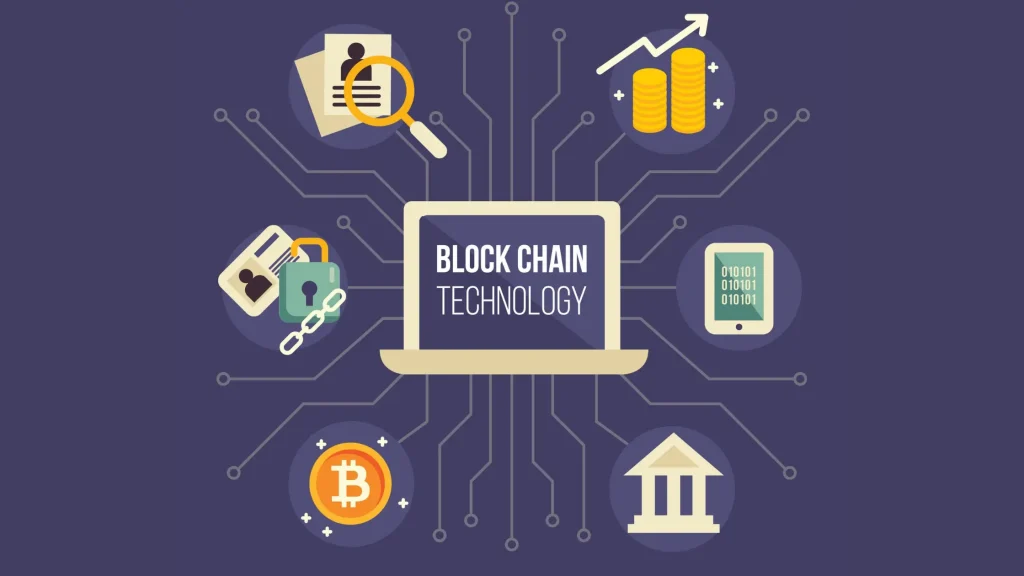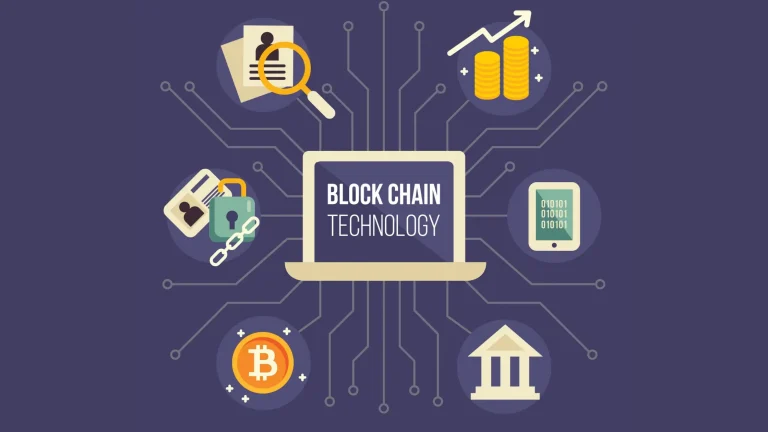When most people hear the word blockchain, they instantly think of Bitcoin or other cryptocurrencies. While it’s true that blockchain is the backbone of digital currencies, this revolutionary technology has far greater potential. In 2025, it is expanding into industries like healthcare, supply chain, real estate, and more.

What is Blockchain?
The blockchain is a distributed ledger with growing lists of records (blocks) that are securely linked together via cryptographic hashes. OR
It is a decentralized digital ledger that records transactions across multiple computers securely and transparently.
Unlike traditional databases, no single entity controls a blockchain, which makes it nearly impossible to tamper with records. This provides trust, transparency, and security – qualities that make blockchain useful in many industries beyond finance.
Key Applications Beyond Crypto
1. Supply Chain Management
Blockchain improves transparency by allowing every step of the supply chain to be tracked. From raw materials to finished products, companies can ensure authenticity, quality, and ethical sourcing. For example, food suppliers use blockchain to trace products back to farms, ensuring safety and reducing fraud.
2. Healthcare
Patient records are often fragmented and vulnerable to breaches. It allows healthcare providers to store medical data securely and share it across systems without compromising privacy. This improves treatment accuracy and ensures patients remain in control of their information.
3. Real Estate
It eliminates middlemen in real estate transactions. Smart contracts can handle property sales, leases, and ownership transfers automatically, reducing fraud and paperwork while speeding up deals.
4. Voting Systems
Fraud and lack of transparency often raise doubts in elections. With blockchain, votes can be securely cast, recorded, and verified, ensuring a tamper-proof and transparent voting process. Some countries are already experimenting with blockchain-based elections.
5. Digital Identity
Instead of relying on passwords or government IDs that can be stolen, it enables self-sovereign identity. Individuals can control their own digital identity and share it only with trusted parties, reducing risks of identity theft.
6. Decentralized Finance (DeFi)
While closely linked to cryptocurrency, DeFi goes beyond simple coin trading. It allows people to borrow, lend, and invest without traditional banks, using blockchain-powered platforms. This opens financial access to millions of unbanked people worldwide.
Advantages for Businesses
- Transparency: Every transaction is recorded and visible.
- Security: Data is encrypted and difficult to hack.
- Efficiency: Smart contracts automate tasks, reducing manual work.
- Cost Savings: By cutting out intermediaries, companies save money and time.
Real-World Examples
- Walmart uses it to track food products, ensuring safety and quick recalls if necessary.
- Estonia has integrated it into healthcare and government services.
- IBM and Maersk use it for global shipping logistics.
Challenges of Adoption
Despite its potential, it faces challenges like:
- High energy consumption in some systems.
- Lack of universal regulations.
- Limited understanding among businesses.
However, as technology improves and governments set clearer rules, these barriers are slowly being overcome.
Final Thoughts
Blockchain is no longer just about Bitcoin. In 2025, it’s becoming a core technology for transparency, security, and efficiency across multiple industries. From supply chains and healthcare to voting and digital identity, blockchain is paving the way for a more decentralized and trustworthy future.
Businesses that adopt it today will be ahead of the curve tomorrow. Also Check Ultimate Guide to Cybersecurity – Protect Yourself – 2025
